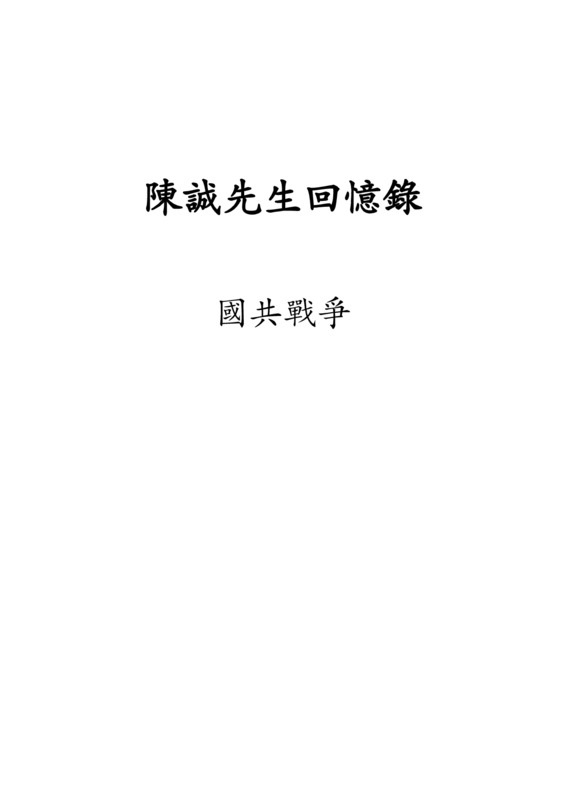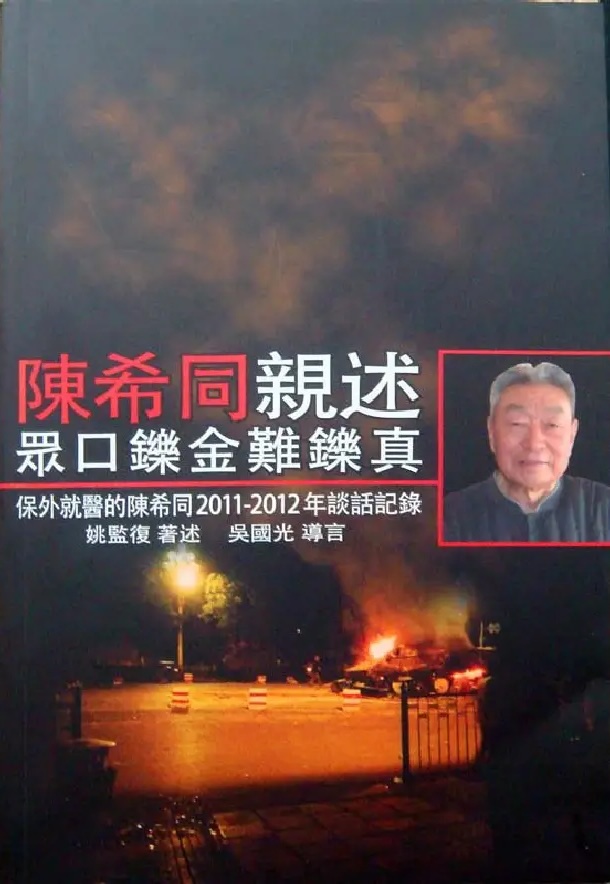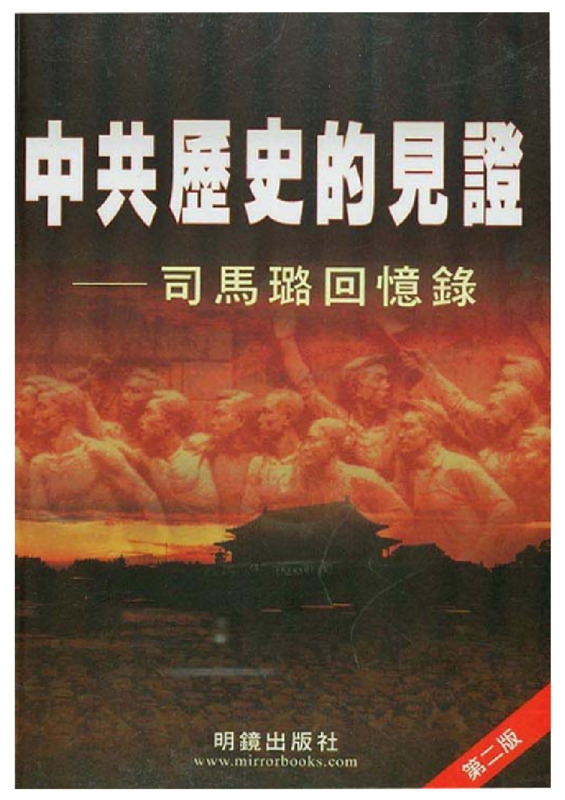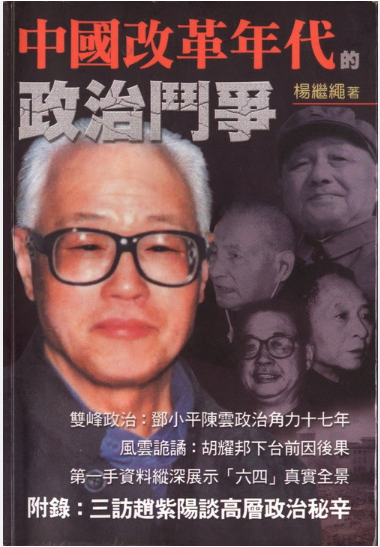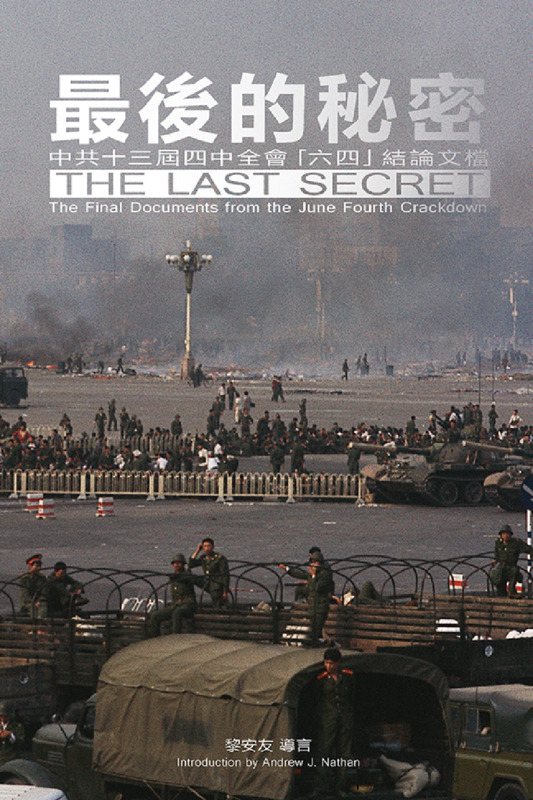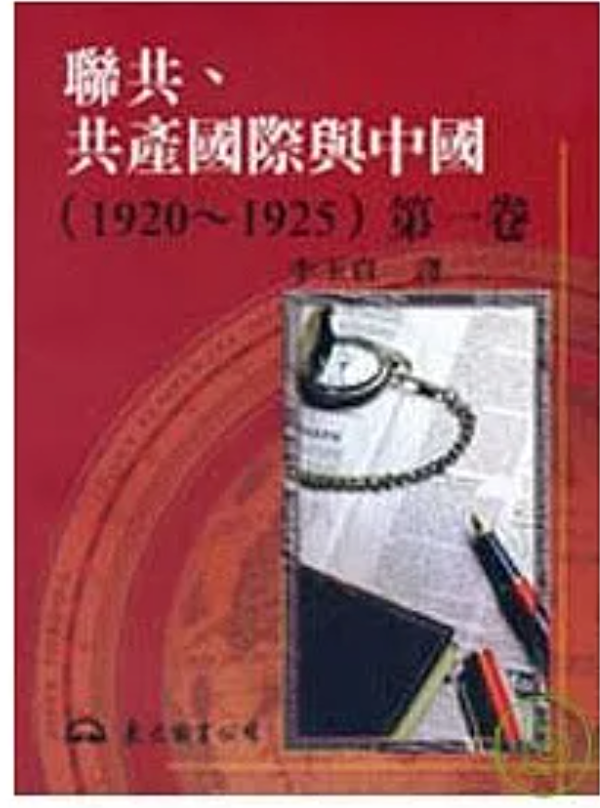Explore the collection
Showing 23 items in the collection
23 items
Book
A Non-governmental White Paper on the June Fourth Massacre
At the turn of the spring and summer of 1989, democratic protests broke out in Beijing and other cities in China. In the early hours of June 4, the Chinese government dispatched troops to suppress the movement. In 2009, on the occasion of the 20th anniversary of the June 4th Incident in 2009, some participants in the movement jointly released the "Unofficial White Paper on the June 4th Incident". The book has 48 pages and a large number of illustrations.
This white paper attempts to provide a complete political background and legal analysis of the events based on reports from Chinese newspapers, radio and television stations at the time, as well as memoirs and interviews that have been published over the past 20 years. Participants in this book believe that the Chinese government has not conducted a comprehensive investigation and objective evaluation of the June 4th Incident, and has long blocked relevant information and prohibited private investigation and discussion of the matter. The report is called a "white paper" to emphasize its rigor and normative nature.
Participants in this book include Hu Ping, Yan Jiaqi, Wang Juntao, Wang Dan, Yang Jianli and others. The book was written by Li Jinjin, a doctor of law.
Book
At the Crossroads of History
This book is Gao Hua's next masterpiece after *How the Red Sun Rose*. It entails a selection of papers published by the author between 1988 and 2004, covering the fields of Republican history, Communist Party history, and contemporary Chinese history. It captures the historical interaction between the present and the past. Gao reflects deeply on the far-reaching Chinese Communist Revolution. With a rigorous and empirical research methodology, he sketches a complex and colorful picture of history, presenting the multiple facets of twentieth-century China's history.
Book
Chen Cheng's Memoirs—The War between the Nationalists and Communists
Mr. Chen Cheng (courtesy name Cixiu; alias Shisou) served as the commander of the KMT army, commander-in-chief of the group army, commander-in-chief of the theater of operations, and chief of the general staff of the KMT. After the defeat of the Kuomintang army in Taiwan, Chen Cheng served the Administrative Yuan as Vice President of the Kuomintang. The volumes associated with *Chen Cheng's Memoirs* were published by Taiwan's National Museum of History in 2005. The series is divided into six volumes: *The Northern Expedition and the Chaos* (one volume), *The War between the Nationalists and Communists* (one volume), *The War of Resistance Against Japanese Aggression* (two volumes), and ***The Construction of Taiwan*** (two volumes). The first volume, *The War between the Nationalists and Communists* includes three parts: *Suppressing the Communists - Memories of the Military*, *Summary of Mr. Chen's Words and Actions*, and *Correspondence and Telegrams*. The book has original historical materials related to the five sieges and the counter-insurgency. In particular, this is the first time that important historical materials regarding the correspondence between Chiang Chung-cheng (courtesy name of Chiang Kai-shek) and Cixiu have been made public.
Book
Chen Xitong's Personal Account - It's Hard to Fuse the Truth with All the Words
The book is a transcript of conversations between Yao Jianfu, a well-known Chinese scholar, and Chen Xitong, who was released on medical parole between 2010 and 2012. Chen Xitong was the mayor of Beijing during the 1989 student movement and was considered one of the main suppressors of the movement. In 1998, Chen was sentenced to 16 years in prison on charges of "embezzlement." In 2004, he was released on medical parole. In this book, Chen Xitong tells his version of the June 4 Tiananmen massacre. He denies not only that he was the head of the "June 4 Martial Law Command" and also claims he is innocent of the charge corruption.
Book
Collected Papers of Wu Yisan (1)
Writer Wu Yisan is the founder of Hong Kong's May 7 Society, an organization dedicated to the collection, research and publishing of everything related to the anti-rightist campaign in 1957,to restore and present the truth about a period of history characterized by severe persecution of remedial intellectuals. Over the years, Mr. Wu has devoted himself to compiling The Dictionary of Names of 1957 Victims. As the Chief Editor of The Hong Kong May 7 Society Publishing House, he also published The Biography of the Rightists of the May 7.
This book is a collection of his political papers, comprising more than 50 published and unpublished essays primarily written between 2004 and 2009, criticizing CCP from various perspectives, including history, current affairs, and culture.
Book
Collected Papers of Wu Yisan (2)
Writer Wu Yisan is the founder of Hong Kong Five-Seven Society, an organization established in 2007 and dedicated to the collection, research and publishing of everything related to the Anti-Rightist campaign in 1957, to restore and present the truth about a period of history characterized by severe persecution of intellectuals. Over the years, Mr. Wu has devoted himself to compiling *[The Dictionary of Names of 1957 Victims](https://minjian-danganguan.org/collection/1957%E5%B9%B4%E5%8F%97%E9%9A%BE%E8%80%85%E5%A7%93%E5%90%8D%E5%A4%A7%E8%BE%9E%E5%85%B8)*. As the Chief Editor of The Hong Kong Five-Seven Society Publishing House, he also published *The Biographies of the 1957 Rightists* and *[New Biographies of the 1957 Rightists](https://minjian-danganguan.org/collection/%E2%80%9C%E4%BA%94%E4%B8%83%E2%80%9D%E5%8F%B3%E6%B4%BE%E5%88%97%E4%BC%A0%EF%BC%88%E4%B8%8A%EF%BC%89)*.
This book is a collection of Wu’s political essays, including nearly one hundred of his published and unpublished essays and speeches between 1999 and 2017, including historical and current affairs analyses, with an emphasis on commentaries of persecuted intellectuals and political dissidents. These people are often called "traitors of China (han jian)" by CCP, but Wu Yisan argues that the CCP is the real traitor that betrays the country and its people.
Our archive also hosts another anthology of his, *[Is Chen Yi a Good Comrade](https://minjian-danganguan.org/collection/%E6%AD%A6%E5%AE%9C%E4%B8%89%E6%94%BF%E8%AE%BA%E6%96%87%E9%9B%86%EF%BC%881%EF%BC%89)*?
Book
Great Power Sinking: A Memo to China, A
This book is a collection of political essays by Nobel Peace Prize winner Liu Xiaobo. It is a sister volume to *Single-Edged Poisoned Sword - A Critique of Contemporary Nationalism in China*, which covers many aspects of Chinese politics, including: one-party dictatorship, powerful capitalism, rights defense, June Fourth, and nationalism.
Book
Mao: The Unknown Story
This book presents the dramatic life of Mao Zedong, revealing a wealth of unheard-of facts: why Mao joined the Communist Party, how he came to sit at the top of the Chinese Communist Party, and how he seized China step by step. Writers Jung Chang and her husband Jon Halliday took ten years to complete this book, interviewing hundreds of Mao's relatives and friends, Chinese and foreign informants and witnesses who worked and interacted with Mao as well as dignitaries from various countries.
Purchase link:https://www.amazon.com/Mao-Story-Jung-Chang/dp/0679746323.
Book
Memoirs of Sima Lu: A Witness to the History of the Chinese Communist Party, The
Sima Lu (1919-2021) was an expert on the history of the Chinese Communist Party. He joined the Chinese Communist Party in 1937, then was politically persecuted in Yan'an, left it, and was expelled from the Party in 1941. In 1952, Sima Lu published “Eighteen Years of Struggle” in Hong Kong, writing about his tortuous journey from defecting to the Communist Party to his awakening and eventual choice of freedom. It became a sensation. He has made in-depth special studies on several leading figures of the CCP, such as Qu Qubai and Zhang Guotao. His memoir, “Witness to the History of the CCP”, is divided into three chapters according to its contents: the first is about his personal experience, the second about the first generation of CCP figures, and the third is devoted to the struggle between Mao Zedong and Zhou Enlai.
Book
Newly Discovered Mao, The: Volume I
Author Wang Ruoshui spent his early years studying philosophy at Peking University. He served as deputy editor-in-chief of the Communist Party newspaper “People's Daily” and was able to participate in high-level ideological discussions, gaining a deep understanding of Mao Zedong as a person and of his thought. He was one of the rare intellectuals within the CCP system who had an independent personality as well as the ability to think for himself. After his death from cancer, his wife, Feng Yuan, helped put together this posthumous book. Published by Ming Pao Press in 2002, it has been described as "the first and most comprehensive and in-depth discussion of Mao Zedong and his thought."
Book
Newly Discovered Mao, The: Volume II
Author Wang Ruoshui spent his early years studying philosophy at Peking University. He served as deputy editor-in-chief of the Communist Party newspaper "People's Daily" and was able to participate in high-level ideological discussions, gaining a deep understanding of Mao Zedong as a person and his thought. He was one of the rare intellectuals within the CCP system who had an independent personality as well as the ability to think for himself. After his death from cancer, his wife, Feng Yuan, put together this posthumous book. Published by Ming Pao Press in 2002, it has been described as "the first and most comprehensive and in-depth discussion of Mao Zedong and his thought.
Book
Political Struggles in China's Reform Era
The author of this book, Yang Jisheng, is a veteran journalist with 35 years of experience in journalism at Xinhua News Agency, China's official news organization. He knows a great deal about the ups and downs of Chinese politics after the end of the Cultural Revolution as well as the intricate power struggles at the top and has a lot of first-hand information. He personally interviewed Zhao Ziyang, Zhu Houze, Li Rui, Ren Zhongyi, An Zhiwen, Tian Jiyun, and other important people. “Political Struggles in China's Reform Era”, first published in Hong Kong in November 2004, was the subject of a series of crackdowns by the authorities against Yang Jisheng. It was republished in 2010 by Hong Kong's Cosmo Books.
Article
Poppies under the Red Sun: The Opium Trade and the Yan'an Model
In the 1990s, history scholar Chen Yongfa made a fundamental study of the opium economy two decades before the founding of the CCP and completed a monograph, "Poppies under the Red Sun: The Opium Trade and the Yan'an Model". Since then, more and more research articles have been written on the subject, and new information has appeared. Subsequently, the phenomenon of the opium economy of the CCP's Yan'an regime has also became an important field of study.
Book
Prisoner of the State: The Secret Journal of Premier Zhao Ziyang
“The Course of Reform”, a memoir by Zhao Ziyang, former General Secretary of the Central Committee of the Communist Party of China, was published on May 29, 2009 by New Century Press in Hong Kong. Its English translation, “Prisoner of the State: The Secret Journal of Premier Zhao Ziyang” was published on May 13 before that. According to the book's preface, in 1992, Du Guanzheng, an old subordinate of Zhao Ziyang and former director of the State Press and Publication Administration, together with Xiao Hongda, another former high-ranking CCP official, persuaded Zhao Ziyang, who was under house arrest, to organize his experiences into a book.
Purchase link: https://www.kobo.com/hk/zh/ebook/ZoerWPfG8TiqoXIYwvW2iw.
Film and Video
Ram
The documentary "Ram" was filmed by independent director Tiger Temple in 2016 and is available here in a revised version by the author in 2021. The film documents a real-life incident that took place in Xi'an during the "1983 crackdown". The encounter of the artist Gong Yang (real name Li Xiaoming), the main character of the documentary, is quite representative. It reflects the cruelty and absurdity of the "1983 Crackdown" political campaign launched under the direction of Deng Xiaoping.
Book
Seventy Years of the Chinese Communist Revolution
Professor Chen Yongfa's book examines the history of the Chinese Communist Party from the perspective of modern Chinese history. It divides it into three stages: revolutionary seizure of power, continuous revolution, and farewell revolution. It delves into three major issues in CCP history: nationalism, grassroots power structure, and ideological transformation and control. published by Taiwan's Linking Publishing in 2001.
Book
The Last Secret : The Final Documents from the June Fourth Crackdown, Introduction by Andrew J. Nathan
The documents in this book come from two high-level meetings of the CCP held after the June 4 Tiananmen Square Incident in 1989, namely, the Sixth Plenary Session of the Sixth Committee of the Beijing Municipal Committee of the CCP and the Fourth Plenary Session of the Thirteenth Central Committee of the Chinese Communist Party (CCP), which was held on June 23rd and 24th at the Beijing West Guest House. The author claims that the documents were copied and kept for many years by an unnamed senior official within the CCP. This set of documents was formed when the CCP made its final conclusions on the June 4 incident. It is also a record of the high-level political operations within the CCP. These documents reveal the ultimate secret of the mechanism by which the Communist Party has always held absolute power. It was published by New Century Press in 2019. Special thanks to Bao Pu, founder of Hong Kong's New Century Press and son of Bao Tong, former political secretary of Zhao Ziyang, for authorizing CUA to share the book.
Book
The Power of Tiananmen:State-Society Relations and the 1989 Beijing Student Movement
<i>The Power of Tiananmen: State-Society Relations and the 1989 Beijing Student Movement</i> is a sociological monograph. It explains the process of the 1989 school movement and interprets the political and economic situation from four perspectives: state legitimacy, ecological environment and mobilization structure, discourse and modes of action, and public opinion. Author Zhao Dingxin interviewed 70 participants in the movement at the time. He also examined many little-known domestic documents. Thus, theory and evidence are closely intertwined.
The book won the 2002 Distinguished Book Award (Collective Action/Social Movements) and the 2001 Distinguished Book Award (Asian and Asian American) from the American Sociological Association.
It is published by the Chinese University of Hong Kong Press.
Book
The United Communist Party, The Communist International and China (1920-1925)
The author, Li Yuzhen, published this book in 1997. The contents are all taken from the declassified archives of the former Soviet Union. Almost all of the 205 documents in this book are published for the first time. The documents reveal the various dimensions of Moscow's relations with China from 1920 to 1925 as well as little-known inside stories. It shows that the Communist Party of the Soviet Union was the real decision-maker of the Comintern. This book shows the complex relationship between China and the Soviet Union, the Chinese Communist Party and the Comintern, the Chinese Communist Party and the Kuomintang, and Moscow and the various political forces in the Chinese court from different perspectives. It provides important clues for the study of history.


